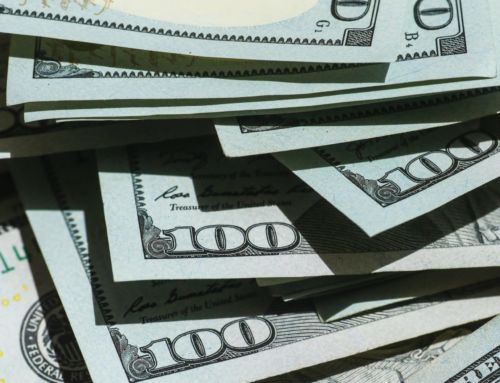Many of us have just enough time to juggle all the things that life throws at us on a daily basis, only to have to stop and organize our financial affairs to have our tax returns prepared. January through April seems to be the time everyone is hustling around trying to pull it all together. Squeezing out those last minute tax deductions can make the difference in paying a little or paying a lot in taxes. No one wants to be overtaxed but life sometimes gets in the way of the time available to be detailed and organized.
Successful people aren’t typically successful by happenstance. It is because they have planned their lives down to each moment of time to make sure they fit in everything that needs to get done. Whether it is attending school, meeting with an important client, talking to the boss about a raise or simply carving out some me time, chances are it won’t get done if it is not scheduled. The old saying holds very true; if you want something done, give it to a busy person. Planning to have your taxes prepared and being able to squeeze out all the deductions possible is really simple if you follow these tips:
Tip #1: Familiarize yourself with last year’s tax return. Pull out your last year’s tax return and review it. Look for the type of documents you used last year to complete your taxes. You also want to look for the names of third party payers that provided you with documents such as your mortgage company, your banks and charities. This will give you a good starting point to not overlook anything you used from last year.
Tip #2: Get an organizing system started. Most of your tax deductions fall in a few categories such as charitable donations, volunteer hours, mortgage deductions, work related expenses, etc. If you create a folder by type of deduction, you can now drop in receipts according to their category. This is really simple to maintain all year long and provides one stop for your tax documents. This will help you get yourself relatively organized and you will now be able to provide totals of all your deductions.
Tip #3: Get a spiral bound notebook and write taxes on the front of the note book. This is your new tax journal. Use this notebook to write down anything that comes to your mind about your taxes. For example, if you took a trip or purchased something and you are wondering if it is tax deductible, you can make a note to remember to ask your tax professional. This way you will not forget and this journal can be used all year as a memory jogger for tax time. You can also use it to make notes as you are working on gathering your data to prepare your taxes. Either way, whether you use it for a twelve month period or whether you use for the time you are gathering your tax records, it is bound to help you stay organized and on top of your game.
Tip #4: Avoid cash payments for tax deductible items. It is always best to pay for anything you want to deduct at tax time by check, credit card or pay pal. This provides a permanent record which is less scrutinized by the IRS. If you did make payments with cash, such as donations, you will want to make a log that states who you paid, the date you paid and how much you paid. A copious note log can be further corroborated with other facts and circumstances which is really good. You may want to take pictures of the Girl Scout cookie boxes!
Tip #5: If you haven’t started getting organized for your 2010 taxes, don’t panic. Use the 12 by 12 plan. This means you take 12 days to go through 12 months of records. Locate all your bank statements, credit card statements and your calendar. Then spend an hour each day for the next twelve days going through one month at a time. You will want to jot down questions and make notes of things that are tax deductible. If you carve out time over a 12 day period, you can get through 12 months of data without being overwhelmed.
No one really looks forward to tax time. I can say with absolute certainty organized clients pay less in taxes. They might not have great records but they have made it easy to really spend time figuring out the best strategy for preparing the taxes. Ultimately, less taxes paid equates to more money in your pocket.





Leave A Comment
You must be logged in to post a comment.